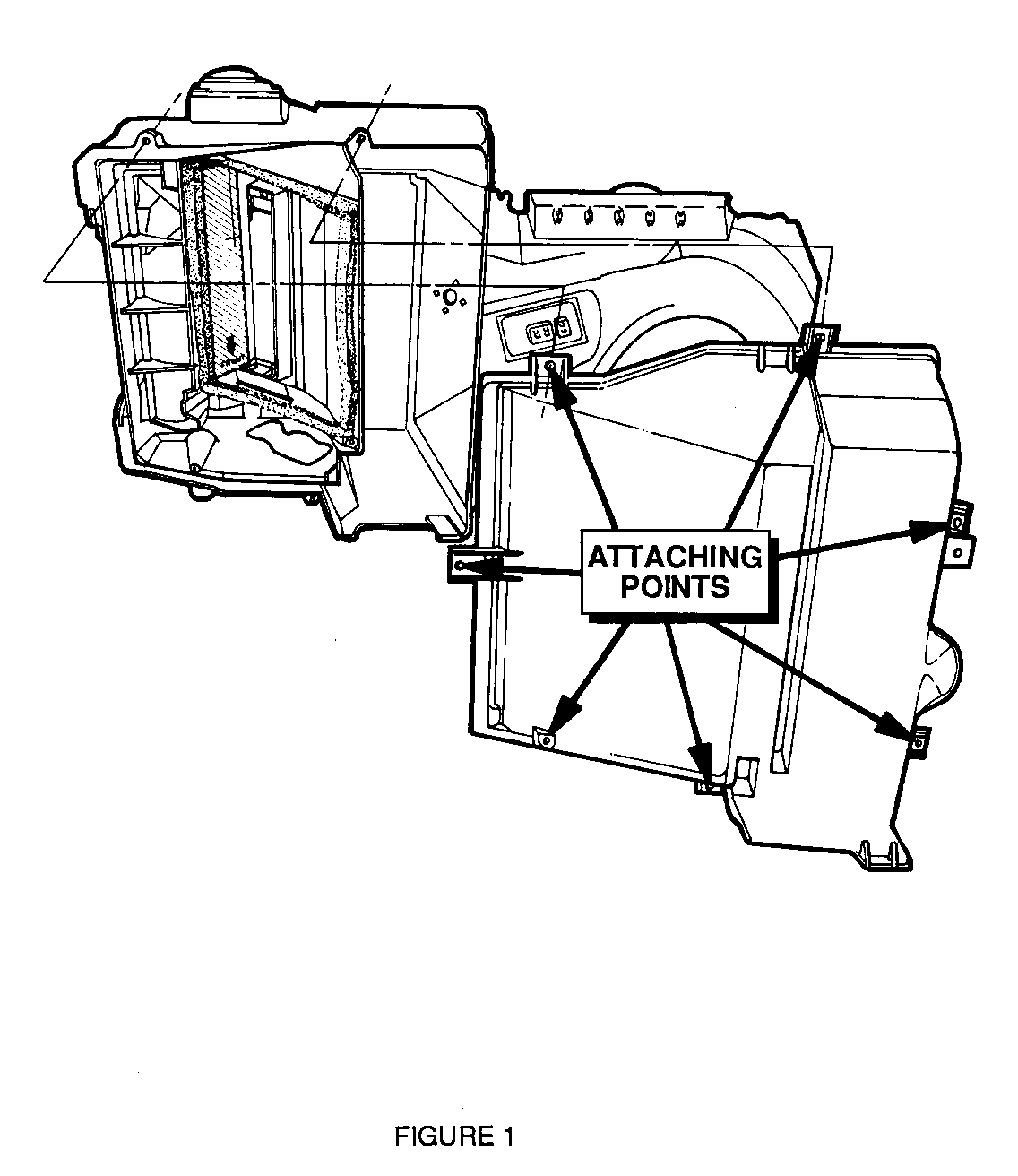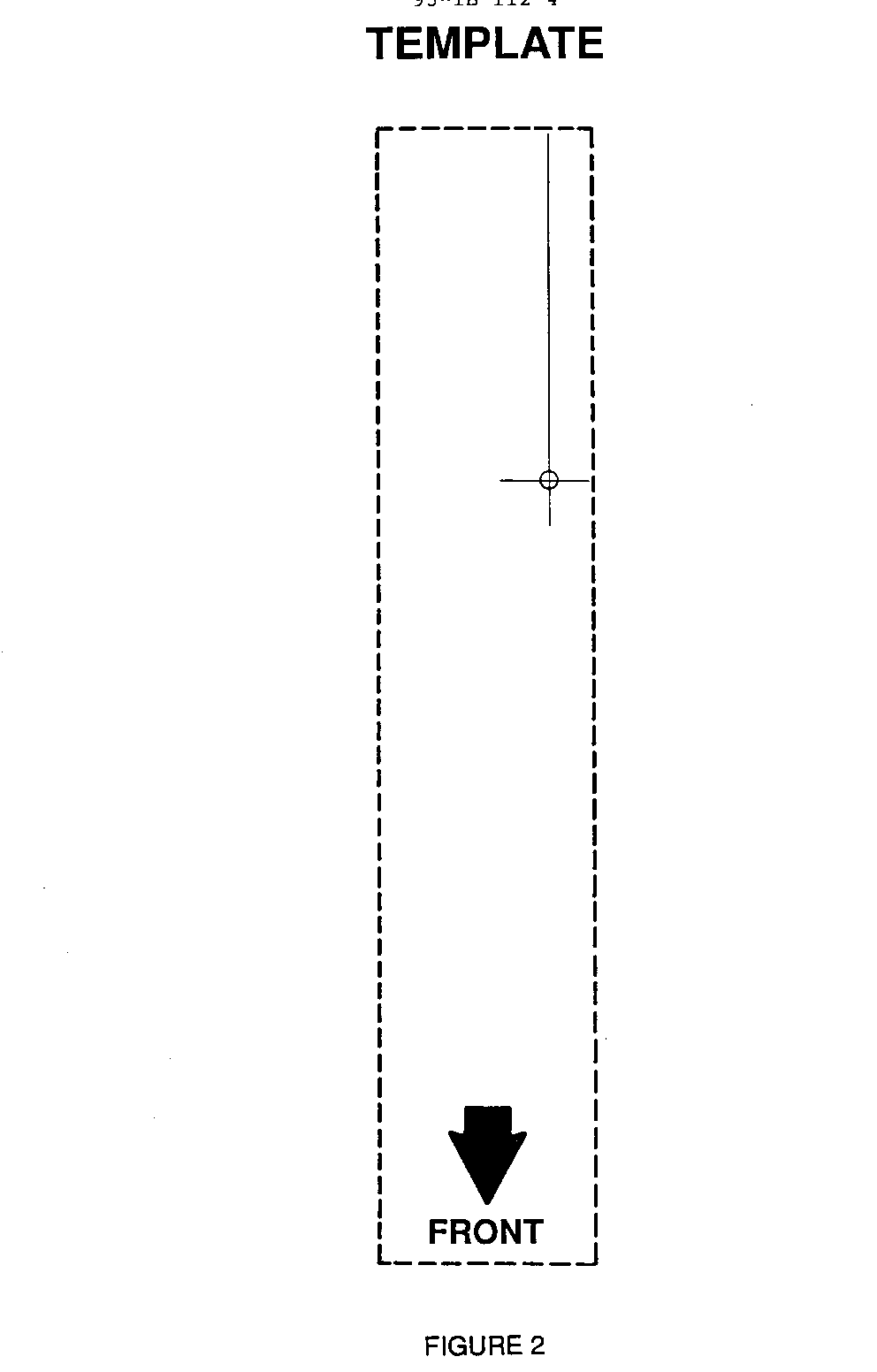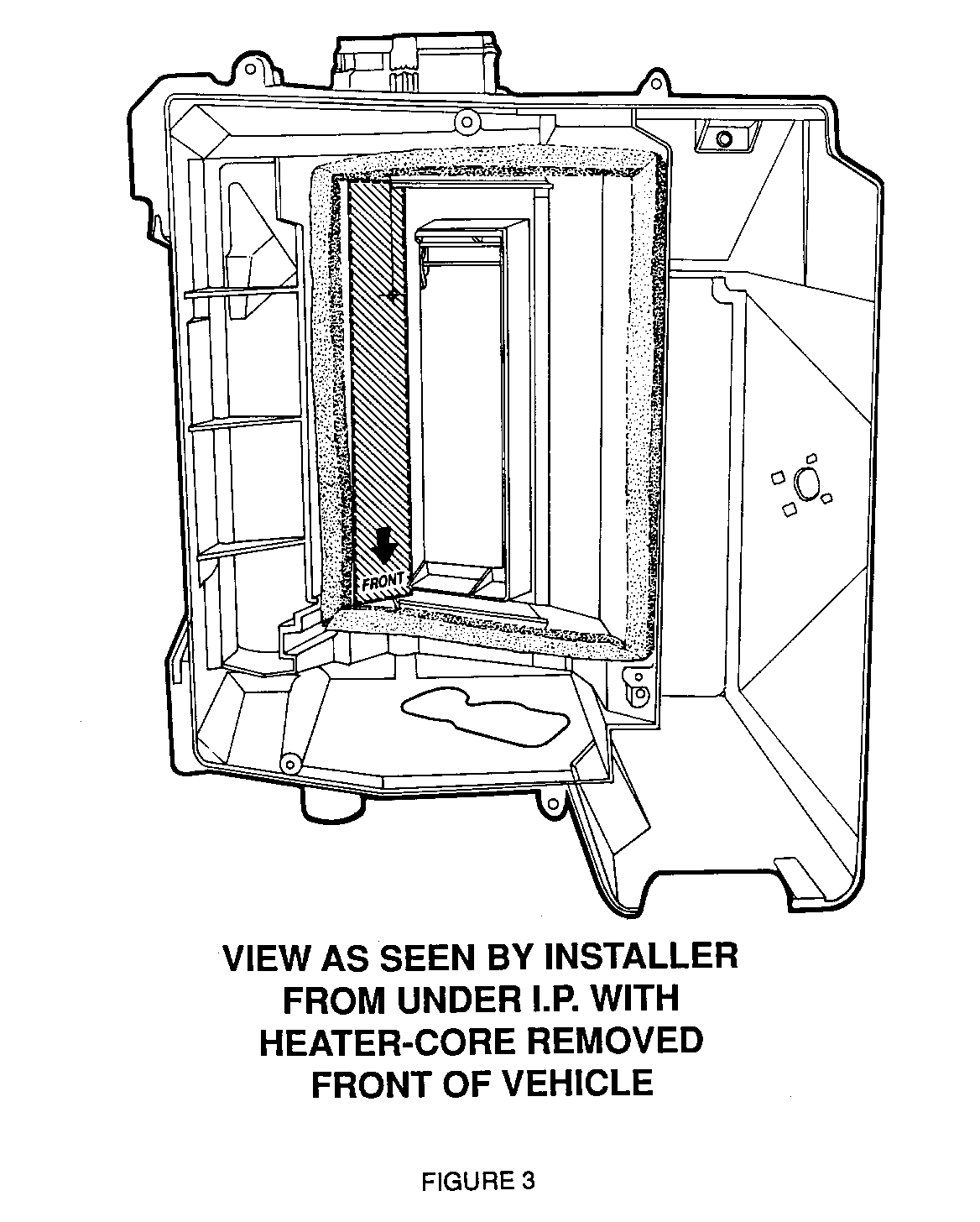EXTREME TEMP. DIFFERENCES IN BI-LEVEL MODE (INST. SCREW)

SUBJECT: EXTREME TEMPERATURE DIFFERENCE IN BI-LEVEL MODE
MODELS AFFECTED: 1993 FLEETWOODS (RWD)
Temperature difference between instrument panel vents and heater ducts (bi-level mode) can vary by 50-60 degrees Fahrenheit.
The heater shut off air door is not in the correct stop position preventing the proper mix of air.
This condition may be repaired by installing a screw as a stop in the inner case wall; the heater shut off door will park in fhe correct position, allowing a better mixture of air.
The repair procedure is as follows:
1. Remove A/C module lower evaporator case per Service Information Manual, Section 1B. Front screw may be hidden by carpet and difficult to access. Use of a 7mm flex head socket may be helpful. Refer to Figure 1 for attaching points.
2. Remove/disconnect heater core per Service Information Manual, Section 1B.
3. Disconnect vacuum harness gang plug connector at rear of module. Apply vacuum to the gray vacuum line on the female gang connector to actuate the heater shut off door into the closed position.
4. Using a 90 degree drill motor and the included template (Figure 2) locate and drill a 5/32" (4.0mm) hole into the inner case wall. Refer to Figure 3.
5. Install screw, P/N 11505332, into hole. Screw must not be stripped and must seat flat against case wall.
NOTE: This particular part number must be used for this repair as these dimensions are critical.
6. Remove vacuum from shutoff door and verify that door will not travel past screw or become hung up.
7. Connect vacuum gang plugs. Install push pin into module boss.
8. Install/connect heater core.
9. Install/connect A/C module lower evaporator case.
Parts are currently available from GMSPO.
For warranty purposes use Labor Operation T1894 at 1.2 hours.



General Motors bulletins are intended for use by professional technicians, not a "do-it-yourselfer". They are written to inform those technicians of conditions that may occur on some vehicles, or to provide information that could assist in the proper service of a vehicle. Properly trained technicians have the equipment, tools, safety instructions and know-how to do a job properly and safely. If a condition is described, do not assume that the bulletin applies to your vehicle, or that your vehicle will have that condition. See a General Motors dealer servicing your brand of General Motors vehicle for information on whether your vehicle may benefit from the information.
